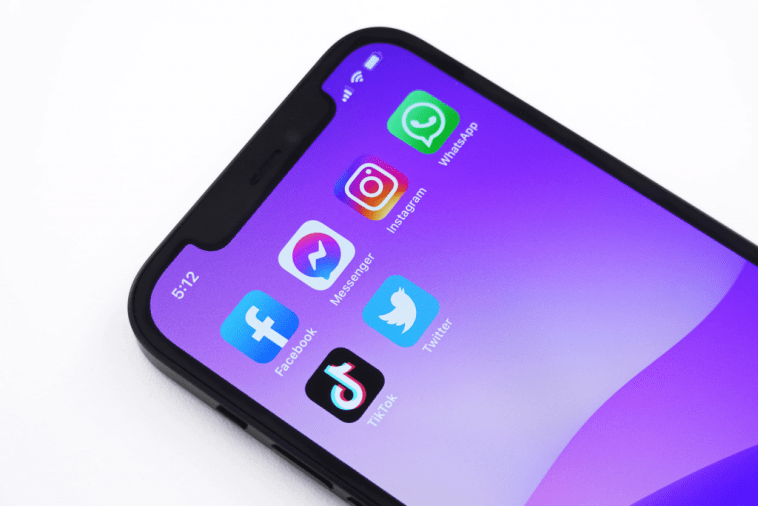Introduction.
Social media marketing has become an essential part of any brand’s strategy, big or small. It’s no longer just about posting pretty pictures or witty captions—it’s about using data and smart tools to reach the right audience at the right time. One of the most powerful tools in this digital age is Artificial Intelligence (AI).
While AI might sound intimidating, it’s super helpful when it comes to boosting your social media marketing game.
So, why should you care about AI in social media? Simple: it can save you time, help you create better content, and make your campaigns smarter.
Think about it—what if you could automate tasks, analyze data in real-time, or even predict which posts would go viral?
That’s what AI brings to the table, and if you’re not using it yet, you’re missing out on some serious potential.
In this article, I’ll break down how to use AI for social media marketing, cover a few tools you can start with, and answer some common questions about how AI works in this space.
The Role of AI in Social Media Marketing
Before jumping into tools and strategies, let’s quickly talk about why AI is a game-changer for social media marketing.
- Personalization at Scale AI helps brands create personalized experiences for users without needing an army of marketers. It uses data to understand user behavior, preferences, and past interactions, which allows you to send the right message to the right person at the right time. So, if you’ve ever seen an ad on Instagram that feels like it was made just for you, that’s AI at work.
- Content Creation and Curation AI can help generate content ideas, write captions, and even create visuals. It can also suggest what type of content your audience is engaging with, saving you the guesswork.
- Chatbots and Customer Service Chatbots powered by AI can handle customer inquiries 24/7. They can answer common questions, recommend products, and even guide customers through purchasing. This saves your team time and ensures your customers are always taken care of.
- Data Analysis and Insights One of the biggest advantages of AI is its ability to process and analyze large amounts of data. Social media platforms generate massive amounts of data every second, and AI can help you make sense of it all. From tracking engagement rates to predicting the best time to post, AI can uncover insights that improve your social media strategies.
- Ad Optimization Running ads on social media can be tricky. AI algorithms can optimize your ads in real-time, ensuring you get the best return on investment (ROI). They can adjust targeting, budgets, and creatives to ensure your ads are always performing at their best.
How Do I Use AI for Social Media Marketing?
Now that we know what AI can do for you, let’s talk about how to use it. I’ll walk you through some practical ways to integrate AI into your social media marketing strategy.
1. Automate Social Media Posting
AI can schedule and automate your social media posts, so you don’t have to manually publish every update. Tools like Buffer, Hootsuite, and Sprout Social use AI to suggest the best times to post based on when your audience is most active.
They also allow you to plan your content calendar ahead of time, ensuring you never miss an important post.
For example, if your audience is mostly active during lunch breaks, AI tools can schedule posts to go live at those times, giving you maximum visibility.
2. Use AI-Powered Content Creation Tools
Creating fresh and engaging content is essential in social media marketing, but it can be time-consuming.
Thankfully, there are AI tools that help with everything from writing posts to designing images. Here are a few tools that can make your content creation process easier:
- Copy.ai: This tool helps you write social media captions and blog posts using AI. You simply input a few keywords, and it generates text for you.
- Canva: While not entirely AI-driven, Canva uses AI-powered features to suggest design elements that will work well together, making your content creation smoother.
- Lumen5: If you want to turn blog posts into engaging video content, Lumen5 uses AI to transform text into animated videos, which are great for sharing on social media platforms.
3. Leverage AI for Social Listening
Social listening tools use AI to monitor social media conversations and track mentions of your brand, products, or industry keywords. By analyzing these mentions, AI can help you identify trends, sentiment, and potential issues early on.
Brandwatch and Sprinklr are two tools that specialize in social listening. They can give you insights into how people are talking about your brand and allow you to jump into conversations that matter most.
4. AI Chatbots for Customer Engagement
When you have an influx of messages, replying to every customer can be overwhelming. AI-powered chatbots can help by answering common questions and even guiding customers to the information they need. ManyChat and MobileMonkey are two popular platforms that help create chatbots for social media.
For example, if a customer messages you on Facebook asking for your business hours or about a promotion, a chatbot can instantly provide an answer—no human intervention needed. This saves time and keeps your customers happy.
5. Analyze Social Media Performance
One of the most powerful ways AI can help your social media marketing is through data analysis. AI can track key metrics like engagement rates, click-through rates, and follower growth. Tools like Socialbakers and BuzzSumo use AI to give you detailed reports and insights that can guide your future marketing decisions.
By continuously analyzing your social media data, AI helps you understand what content works best, who your audience is, and how to improve your strategies.
6. Optimize Your Ads with AI
If you run paid ads on social media, AI can help optimize them in real-time. Platforms like Facebook Ads and Google Ads use AI to adjust targeting and budgets, ensuring you get the most out of every dollar spent. This takes the guesswork out of running ads and ensures you’re reaching the right people.
AI can also help with A/B testing, automatically testing different ad creatives and optimizing them based on performance. This allows you to get better results faster.
FAQs
Q: Is AI hard to use for social media marketing?
Not at all! Many AI tools are designed to be user-friendly and easy to set up. You don’t need to be a tech expert to start using them—most of these platforms have intuitive dashboards and helpful tutorials.
Q: How much does AI for social media marketing cost?
There are a wide range of AI tools, and the cost can vary depending on the features you need. Some tools, like Hootsuite and Buffer, offer free versions with basic features.
Paid plans typically start around $10 to $30 per month, but if you need more advanced features, like analytics or AI-driven insights, prices can go up to $100 or more per month.
Q: Can AI replace humans in social media marketing?
While AI can automate many tasks and help with data analysis, human creativity and strategy are still essential. AI is a tool to assist and enhance your efforts, not replace them. It helps you work smarter, not harder.
Q: How can I measure the success of AI in my social media marketing?
Look at your engagement rates, follower growth, and the performance of your ads. AI tools can provide insights into how well your content is doing and help you refine your strategy for even better results.
Conclusion
AI is transforming the way we approach social media marketing, making it easier and more efficient to create personalized content, engage with customers, and optimize our strategies.
By embracing AI tools, you can save time, boost engagement, and see better results in your campaigns.
Are you ready to start using AI to level up your social media marketing? Or is there a specific tool or strategy you’d like to explore more?





GIPHY App Key not set. Please check settings